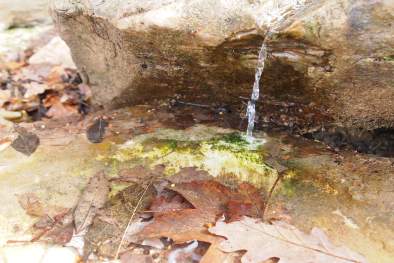In rural places in Romania, water quality rather quantity is an issue for local people, majority using ground water from wells, exposed to various pollutants, as a drinking water.
The country has adopted European Union drinking water legislation; however, it does not cover private wells in villages. In addition, population and authorities are not aware about possible links between man-made pollution of water sources, water quality and related diseases.
Women in Europe for a Common Future (WECF) implemented a two years project "Safe Sanitation, Health and Dignity" in villages of four Romanian counties Giurgiu, Ialomita, Mehedinti and Teleorman. Goal was to raise awareness on water source protection, safe sanitation, organic waste management, hygiene and health.
To address this, WECF has introduced an educational package called "Water Safe Plan's Toolkit" for schools to promote community based Water Safe Plans for local small scale water supply systems like dug wells and public taps. The Water Safe Plan's Toolkit was tested at 8 schools and included a questionnaire to collect qualitative and quantitative data from local stakeholders.
As to the results, success of Water Safe Plans strongly relied on school teachers and local civil society to mobilize pupils and their parents. In most of the villages, the project team found nitrate contamination of groundwater, caused by human activity. A first step in addressing this problem should be awareness rising followed by practical water protection measures.
The project showed that Water Safe Plan can serve as a link between local communities, regional and national authorities and contribute to fulfilling targets of the Protocol on Water and Health and objectives for rural areas.
